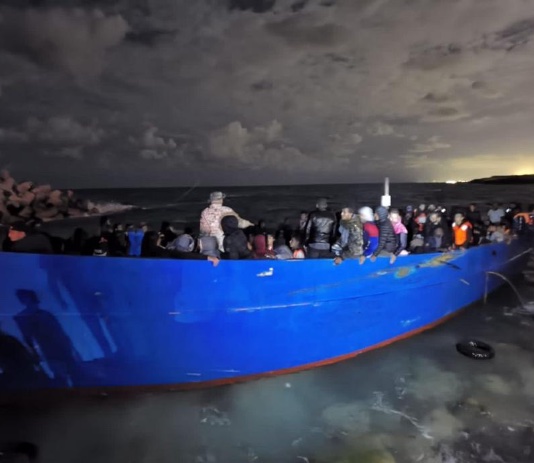Dire agency –
“There is no evidence of Russian involvement in the current increase in the migratory phenomenon from Libya but the Italian authorities should not be less concerned for this: sea voyages from Cyrenaica have been increasing for just under a year and a new route starting from Egypt”.
The analysis is by Jalel Harchaoui, a political scientist specializing in North Africa and Libya at the Royal United Services Institute (Rusi), an international security and defense think tank founded in Great Britain almost a century ago, one of the longest-lived and best known in the United Kingdom.
The analyst comments from Paris to the Dire agency on the increase in arrivals of migrants by sea from Libya that is recorded this year and the analysis provided in this regard by the Italian Defense Minister Guido Crosetto, who today connected “the increase exponential of the migratory phenomenon that starts from the African coasts” to a “clear strategy of hybrid warfare that the Wagner division, mercenaries in the pay of Russia, is implementing, using its significant weight in some African countries”.
The interview takes place the day after a new shipwreck in the central Mediterranean: a boat capsized yesterday 110 miles north-west off the city of Benghazi, in the eastern region of Cyrenaica; 17 people were rescued while thirty are missing. According to the daily statistical dashboard of the Ministry of the Interior, from the beginning of 2023 to today there have been just over 20 thousand landings of migrants on our coasts, compared to around 6 thousand in the same period last year.
Harchaoui, who speaks from Paris, begins: “There is no evidence of a role of Moscow or of entities linked to Moscow in the current migratory phenomenon that comes from North Africa”. The crux of the matter is “much different” and to identify it we need to look at Cyrenaica: “Since July or August of last year we have observed the growth of departures from Tobruk or Benghazi and the opening of a new route involving many Egyptian citizens, and then Libyans and Syrians”.
The analyst clarifies: “A substitution is not underway – he explains – everything terrible that happened in Tripolitania with respect to the trafficking and abuses of migrants continues to occur: however, now the route from eastern Libya is establishing itself, from last year I think over eight thousand people left and the trend is increasing”.
Harchaoui traces some differences between the flow of migrants that departs from eastern Libya and that which originates in the west of the African country, for almost a decade divided into two macro-areas of political influence headed precisely by Tripolitania and Cyrenaica. Two factions, those, expressions of these two areas, which also faced each other in open conflict for at least seven years between 2014 and 2021.
“Ships leaving from the east are generally more robust fishing vessels than the often dilapidated boats that take to the waters from the west. The nationalities involved also change – says the political scientist – Egyptian, Libyan and Syrian citizens leave Cyrenaica, while many people from the West come from sub-Saharan African countries, many from the Horn of Africa. Both routes are also used by people of Bangladeshi origin.”
The emergence of this new “circuit”, as the expert defines it, is not good news. “It is worrying” denounces the scholar, who adds: “We are talking about trips that cost around 3 thousand dollars per person and which are generally carried out with boats capable of carrying hundreds of people”.
Many questions arise from this new phenomenon. “What are the authorities of Cyrenaica doing – asks the analyst – and, in particular, the men under the command of the strong man of the region and his son, Khalifa and Saddam Haftar, in managing or controlling this phenomenon? And the Italian authorities, what kind of behavior are they adopting over the longer term?”.
Harchaoui tries to make hypotheses about what facilitated the birth of this new route. “Certainly – reasons the expert – we must mention the worsening of the economic crisis in Egypt, which has played a fundamental role. On the other hand, however, the growth of these trips and of the system that manages them is part of a broader increase in all the illegal activities that pass through eastern Libya: the trafficking of human beings but also of gold, drugs such as marijuana and captagon and then the smuggling of fuel”. Harchaoui puts forward a further hypothesis: “It is possible – he says – that whoever controls Cyrenaica has increased his tolerance towards this illegal economy, perhaps with a view to increasing his sources of income”.
